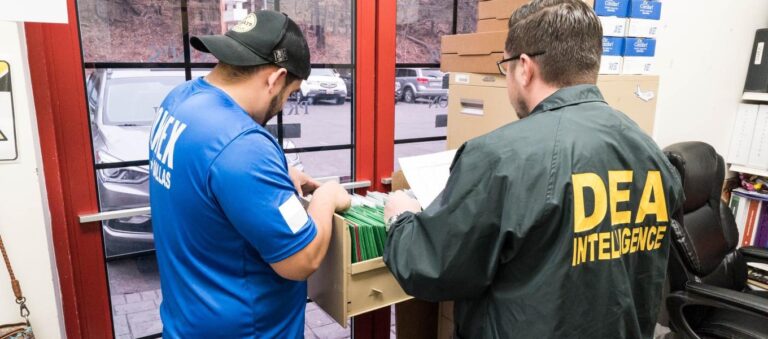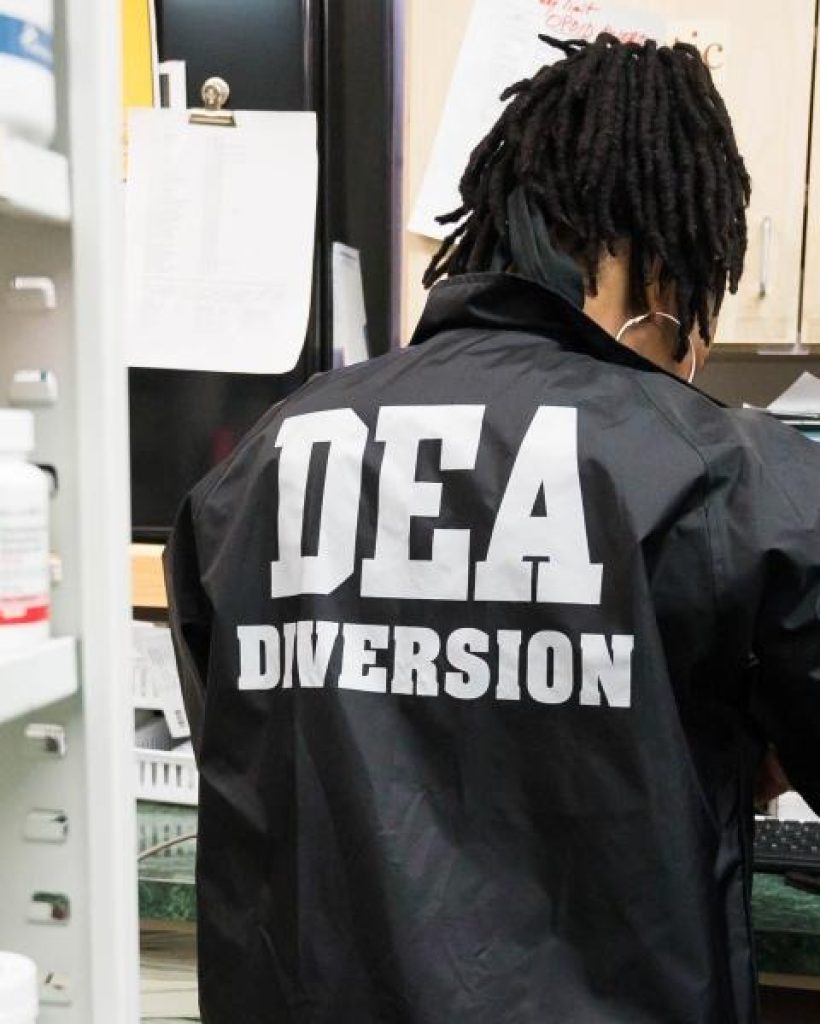SEC Crypto Mining Case Paused After Feds Bring Charges – Law360
More Information


Drug diversion is the illegal distribution or abuse of prescription drugs or their use for purposes not intended by the prescriber. Prescription drug diversion may occur at any time as prescription drugs are distributed from the manufacturer to wholesale distributors, pharmacies, or patients. Members of the medical profession are sometimes accused of being involved in diverting prescription drugs for recreational purposes, relief of addictions, monetary gain, self-medication for pain or sleep, or to alleviate withdrawal symptoms.
Drug diversion is a very common charge and comes with strict penalties that you must be aware of. If you are being investigated by the Drug Enforcement Administration (“DEA”) for drug diversion offenses, we can help. GreenClark has expertise serving clients facing DEA investigations, civil and criminal charges, and other penalties related to these offenses.
Whether you use one controlled substance or 100, the rules and regulations are the same. You face very specific security standards and recordkeeping requirements, and no matter the volume of controlled substances you purchase and use, failure to meet these requirements can have significant financial and legal consequences.
No. Anyone registered with the DEA to handle controlled substances is open to random inspection and investigation. Regardless of controlled-substance volume or number of patients, government agencies have the authority to arrive for unannounced inspections.
DEA investigators take their jobs very seriously, and rightfully so. They interpret controlled-substance laws and regulations literally and expect them to be followed unconditionally. Non-compliance can lead to a referral to the United States Attorney’s Office for civil fines or criminal prosecution. Federal criminal law states that “knowing failure” to “make, keep or furnish” any record, required by regulation to be kept, is punishable by up to one year in prison and a $100,000 fine. “Negligent failure” is a civil violation punishable by fines of up to $14,502 per occurrence. Ultimately, the DEA can implement an “order to show cause” process and strip you of your controlled substance registration.



The DEA investigates alleged diversion cases. Sometimes these investigations result in administrative orders, fines, and civil penalties. But in more serious cases, investigations often result in criminal indictment of physicians, nurses, pharmacists, or others for violations of the federal Controlled Substances Act. After the DEA finishes their drug diversion investigation, prosecutors from the Department of Justice will determine if federal prosecution is warranted. State prosecutors and state licensing boards can also bring drug diversion cases.
In investigating suspected drug diversion, the DEA will often send undercover investigators or special agents to the practitioner’s office. These undercover investigators routinely surreptitiously record what occurs during these office visits. Investigations often result in the DEA executing a search warrant at the practice/pharmacy, in cooperation with local authorities and/or the FBI. During the search, they’ll try to obtain statements from the healthcare providers and employees in the practice/pharmacy. TJF recommends never making a statement to DEA agents without advice from a drug diversion defense lawyer. Additionally, DEA agents routinely try to get practitioners to sign a Voluntary Surrender of Controlled Substances Privileges form (DEA Form 104). A practitioner should never use this form to surrender their DEA controlled substances Certificate of Registration because the Form 104 contains inculpatory language, and because use of the Form 104 is not required by the relevant federal regulations governing license surrender. Generally, by the time the practice is searched, both the DEA and DOJ have enough evidence to charge the staff, including the doctor/nurses/pharmacists and all other mid-level providers at the practice. It is not uncommon for an indictment to be already issued but under seal. It’s crucial you hire a drug diversion attorney at the first moment you suspect that you’re under investigation.

Gather all documents related to the case and be ready to tell us about them.
Be ready to discuss the timeline of events that have taken place up until now.

Please fill out the form below, and we will reach out to you to discuss the next steps.
We welcome the opportunity to speak with you about your legal problems. We are confident that after doing so, you will see what sets us apart.
8350 N Central Expwy 19th Floor Dallas, TX 75206
817-953-8699
817-668-0659
550 Reserve Street Suite 190 Southlake, TX 76092
817-953-8567
817-668-0659
The U.S. Sentencing Commission implemented key changes to the Sentencing Guidelines that took effect on November 1, 2024. These...
DISCLAIMER: The information you obtain at this site is not, nor is it intended to be, legal advice. You should consult an attorney for advice regarding your individual situation. We invite you to contact us and welcome your calls, letters and electronic mail. Contacting us does not create an attorney-client relationship. Please do not send any confidential information to us until such time as an attorney-client relationship has been established.
DISCLAIMER: The information you obtain at this site is not, nor is it intended to be, legal advice. You should consult an attorney for advice regarding your individual situation. We invite you to contact us and welcome your calls, letters and electronic mail. Contacting us does not create an attorney-client relationship. Please do not send any confidential information to us until such time as an attorney-client relationship has been established.